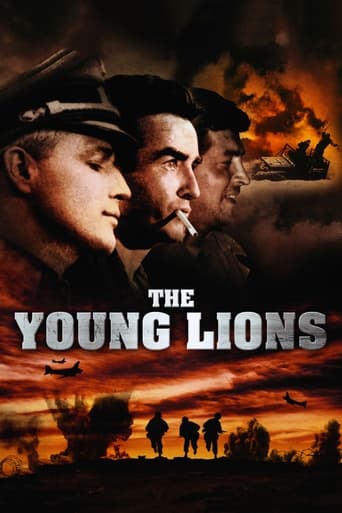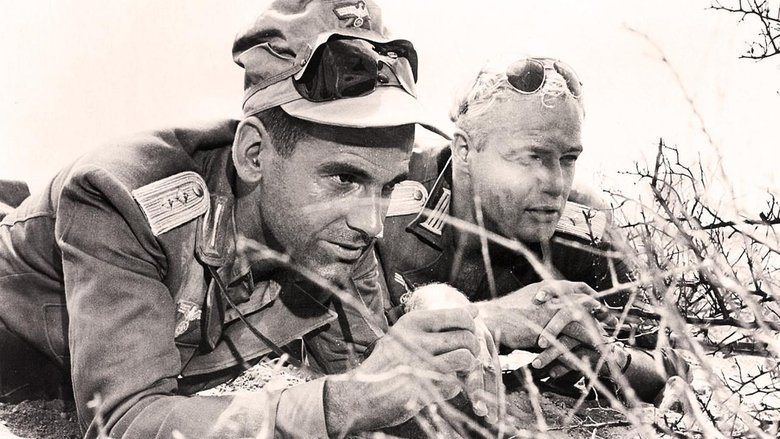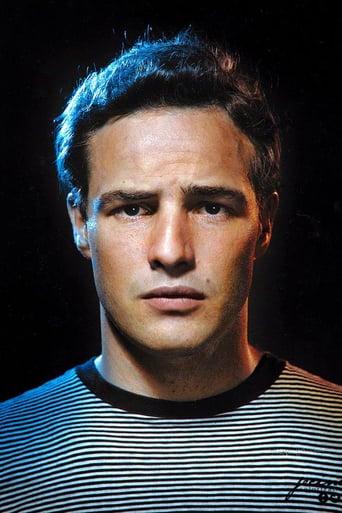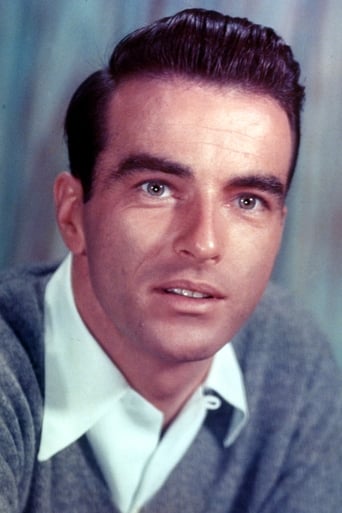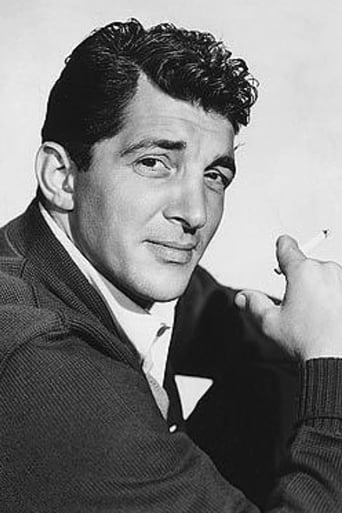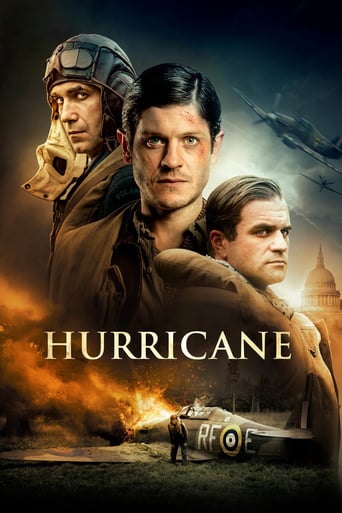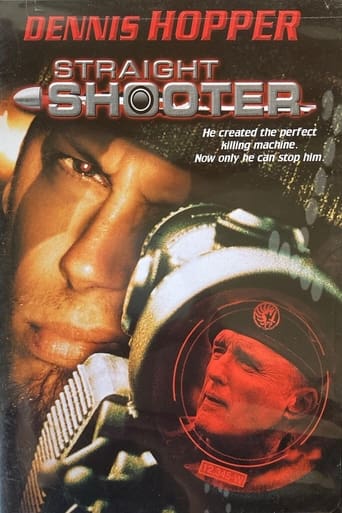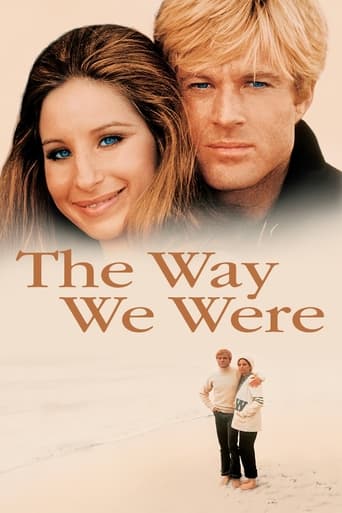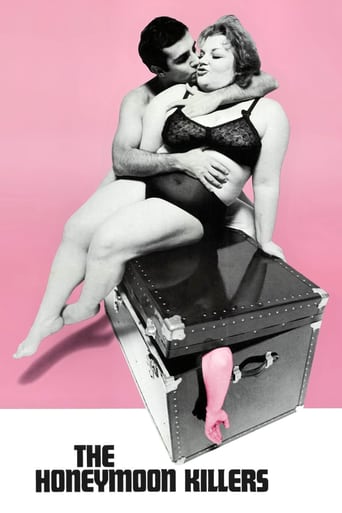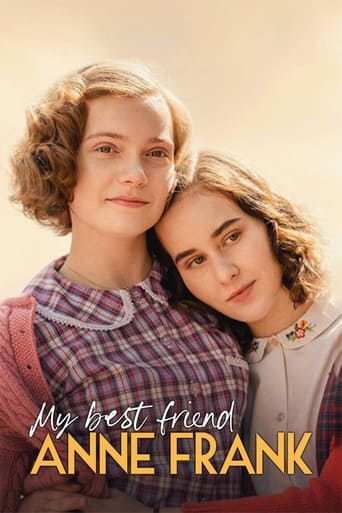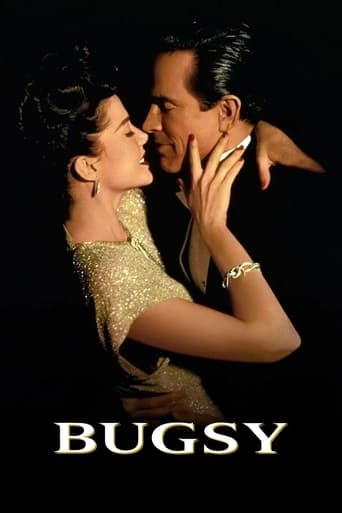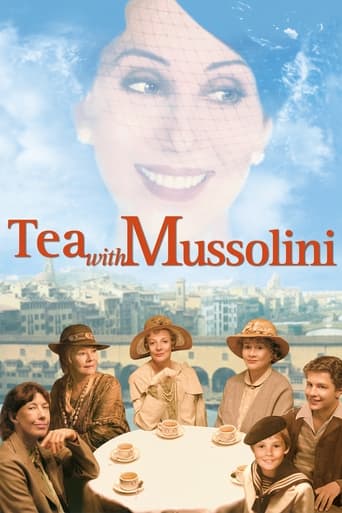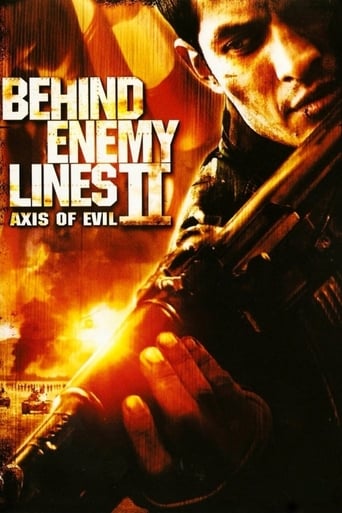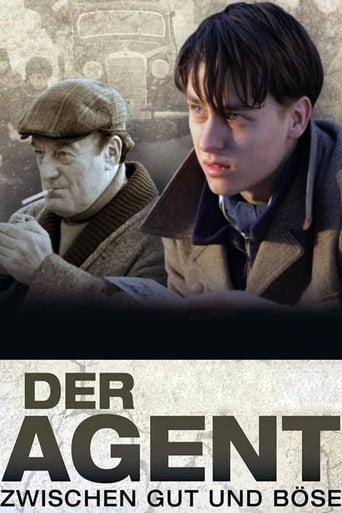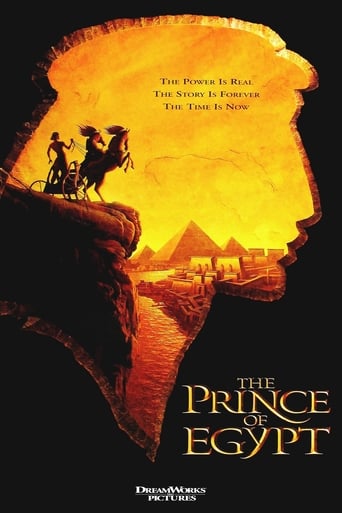The Young Lions (1958)
The Young Lions follows the lives of three soldiers: one German and two Americans, paralleling their experiences in World War II until they meet up at the end for a confrontation
Watch Trailer
Free Trial Channels
Cast


Similar titles
Reviews
Very well executed
It’s an especially fun movie from a director and cast who are clearly having a good time allowing themselves to let loose.
The performances transcend the film's tropes, grounding it in characters that feel more complete than this subgenre often produces.
Blending excellent reporting and strong storytelling, this is a disturbing film truly stranger than fiction
This Twentieth-Century Fox film, based on Irwin Shaw's novel and produced by Edward Dmytryk, depicts the horrors and anxieties felt by soldiers and their mates during WWII. Marlon Brando, as the German lieutenant Christian Dietsl is definitely a lion, passionate about Hitler and what he believed that he Hitler could do for Germany, though he did not like to kill innocent civilians. The outstanding Montgomery Clift as the Jew Noah Ackerman was also willing to fight, not only the enemy but also the fellow soldiers who began to hate him. Dean Martin as Whitacre seemed to change his character as he transitioned from a night club entertainer to a more firm soldier himself. Who wouldn't have felt for Hope Lange, (who acted as Hope Plowman) the lady who became Ackerman's wife? Again, griefs and anxieties were felt by people both in Germany and in the US. The war scenes were realistic, and the scene depicting anemic captives in a German concentration camp was realistic and very graphic. The next-to-last scene in the movie was exciting and good, (depending on who you were for), and the very last scene was warm and endearing. Because of the war scenes, scenes depicting passionate feeling on the parts of the main characters, and occasional romantic scenes, the movie was another three-hour drama which captured and maintained viewers' attention well.
This is a pretty good movie, with two first rate actors (Brando and Clift), and if it hadn't been based on a first rate book by best-selling author Irwin Shaw, I'd have rated it a bit higher. I realize that a movie is not a book, but when a book has high merit and a distinctive character, and is then bowdlerized in typical Hollywood fashion, the resulting film cannot just be judged on its own merits.Shaw's book is considered one of the great WW2 novels (though many "elite" critics have characteristically dissed him because his books were popular), but it's more accurate to think of it as a book about anti-Semitism set in the context of America's war with Germany, than as simply a war novel. At the same time, The Young Lions is a long book, indeed, an epic, rich in both incident and observed detail, with many well realized episodes of combat and wartime crime, barbarity, and horror. It's a story of three young men of disparate backgrounds (ironically dubbed "young lions"), two Americans and one German, drawn together by fate, much like the characters in War and Peace, which this book resembles in many ways, though it has more focused themes.All three of these men are in their own way exceptional, and they rather epitomize than typify certain elements of the cultures they represent.The German, Christian Diestl, is meant, both in the book and the movie, to represent the mythic "good German". Diestl is good looking, attractive to women, and athletic (an expert skier and part time ski instructor), and he is reasonably well-mannered, well-educated, and cultured in the Germanic mode, though he is no intellectual. Diestl is also, however, somewhat naively politically active, and is in fact (in the book but not the movie) an avowed Nazi, but only after several years as a communist, and given Hitler's persecution of the communists in the 1930's there's more than a suggestion that Diestl has switched allegiances to survive.The American, Noah Ackerman (played by Montgomery Clift), is the typical, largely assimilated, second generation American Jew—not overtly religious, but introverted, intellectual, and subtly alien. In the book, he is called out to California to attend his dying father, a reprehensible man and a caricature of a refugee Eastern European Jew, for whom Noah feels only revulsion. After his father's death, he removes to NYC and obtains a low-level job there.Finally, the Michael Whitacre character (played by Dean Martin) is a middling journeyman in the artsy NY theatrical business, loosely married to a more successful movie actress, and generally at loose ends in his life, and already tending toward dissolution in his early 30's. He too is attracted to communism, or at least to a die-hard communist whom he meets at a NYC theatrical party, in town to raise money from the feckless show biz set for the Republican cause in Spain for which he fights. Michael's problem is that he has talent but no character, and nothing that he believes in very much, including himself. As a result of his anomie, he is doing what he can to evade the war, and the inevitable duty that he feels as a man and citizen, yet he's not really a coward, any more than the next man of imagination.If these thumbnails already seem a bit different from their opposite numbers in the movie—more complex and problematic—I am here to tell those who haven't read the book that their significant evolutions in the course Shaw's epic, through seven wartime years (horribly telescoped in the movie) are vastly different from the realizations of these characters in this rather routine Hollywood WW2 movie, despite the distinguished acting by Clift and Brando.I've hardly broached the deliberate sanitizing of the book's major theme, anti-Semitism, American as well as German, which is at most hinted at in the movie. For starters, Whitacre's half-hearted show business infatuation with communism, and Diestl's overt Naziism, and earlier communist background have been scrubbed from the movie by its Hollywood creators, who were at the time living through the HUAC and McCarthy era. Also, the overt American anti-Semitism that Noah encounters, the loathsome caricature of his dying Jewish father, etc. have all been meticulously expunged or retouched. I don't remember a single word or phrase suggestive of American anti-Semitism being uttered beyond the one time identification of Noah as a Jew.But the evisceration of one of the book's major themes, pervasive anti-Semitism, isn't the only unforgivable distortion. Shaw's novel has also been largely gutted of its character development. In the book, we have three young men of different backgrounds being sucked into a common war between their countries and cultures, but each is primarily fighting his own personal war: Noah, provoked by discrimination he encounters in the army, is intent on proving that he is a better man and soldier than those of his fellows who despise him as a Jew; Michael, to become a man in the larger senses of the word; and Diestl to measure up to his commanding officer, Lieutenant Hardenburg, a German superman.In the movie, Michael's only issue is to prove that he's not a coward; Noah that he's a regular American guy, despite his somewhat exotic and intellectual bent; and Diestl that he's still a decent person despite the horrors he has experienced as a dutiful German soldier. At the end of the movie, Diestl is ground down by war, but morally he has hardly evolved at all, yet in the book he slowly degenerates into a monster.The book is far darker and disturbing, but also more absorbing and rewarding, than the movie, as one becomes invested in each of these characters, their personal crises, and their ultimate fates, and for those who have a taste for old-fashioned adult fiction on the grand scale, my recommendation is to read the book and skip the movie.
After the opening credits, we begin with New Year's Eve, 1938 in Bavaria, Germany. Blond shoemaker Marlon Brando (as Christian Diestl) is working part-time as a ski instructor. He enjoys a romance with American beauty Barbara Rush (as Margaret Freemantle). They break up when Mr. Brando joins the Nazi army. She is suspicious of German chancellor Adolf Hitler's political intentions, but Brando is not. He hopes Hitler will bring prosperity to Germany. World War II begins. On the other side of the Atlantic Ocean, American men are drafted as the country prepares for a war. At the draft board in New York City, Jewish store clerk Montgomery Clift (as Noah Ackerman) surrenders a cigarette to nightclub and radio singer Dean Martin (as Michael Whiteacre) and the men become fast friends. At a party, Mr. Clift begins a romance with pretty blonde Hope Lange (as Hope Plowman) while Mr. Martin dates Ms. Rush..."The Young Lions" was based on Irwin Shaw's 1948 best-selling novel. The 1958 adaptation does not really work – in this particular case – as it really plays out like two different films, weightlessly edited together. Brando and director Edward Dmytryk appear to have cooperated on changing his character to appear more sympathetic. Perversely, this strengthens Brando's portion of the film, giving his characterization more depth; however, it does little for the film as a unit. The most interesting role is portrayed by Clift, who is engaging in a role which recalls his classic appearance in "From Here to Eternity" (1953). Heralded as the third lead, Martin is good as a supporting player in Clift's half of the story. The three men may be little old for the parts, but are plausible...Rush is an underrated actress and she shows that here, especially in her scenes with Martin. Now appearing without comic partner Jerry Lewis, Martin remains appealing. Rush is a tenuous link between the US and German men. She, Ms. Lange and a seductive May Britt (as Gretchen Hardenberg) are distinctly beautiful – but the story is not about them. Brando's half benefits by contrasting his character with more loyal Nazi soldier Maximilian Schell (as Hardenberg). Filmmakers would have been wise to increase Mr. Schell's role and parallel him – through cinematic trickery – with Clift's character. Brando and Martin are also parallels. For reasons unfathomable in hindsight, there is no real scene for Brando and Clift to play, together. They do cross paths at one point, but do not really interact like you may be hoping. That someone could not write a small scene, at least, for the two highly regarded actors is a major disappointment.******* The Young Lions (4/2/58) Edward Dmytryk ~ Marlon Brando, Montgomery Clift, Dean Martin, Maximilian Schell
Marlon Brando's patrilineal ancestor, Johann Wilhelm Brandau, was a German immigrant to New York in the early 1700s. Marlon must have had the genes for his part in this rather soggy drama, as "Christian" --- would you believe! Actually, in real life, Brando was raised as a Christian Scientist. See Wikipedia. He did not play a Nazi in this film, in spite of what some reviewers say. They could not have been listening to the dialogue. Nor was he a member of the SS. He is supposed to have been a Bavarian cobbler, living in a mountainous ski-resort, who should have stuck to his last. Why does he then say: "Uh, I vish I vas back in Austria! I vish I was beck in ze snow... in ze vinter... in ze mountains..." ???? The truth is, in spite of what is misquoted on this site, he doesn't say "Austria". There is something faintly ludicrous in the motorcycle scene, with two Germans, Brando (Brando is NOT a Nazi --- another misdescription) and Schell, talking to each other in English with German accents. The language problem remains unsolved in many movies.There's something dissatisfying about this movie, but difficult to say exactly what. It's certainly overlong. It also seems just a wee bit too goody-good for its own good, and therefore lacks the bite that it might and ought to have had. Dean Martin is an unattractive character; Clift is just too shy, sweet, and weedy for words; Brando is very good, very charming, and makes one keep wishing the Germans had won. Some very silly reviewers wonder if his German accent would be considered plausible by Germans. How the devil would they be able to tell? I thought it was excellent --- better than his English accent, when he played the Fop on the Bounty.Worth a watch, but very dated. Will appeal more to Americans. Half-marks.

